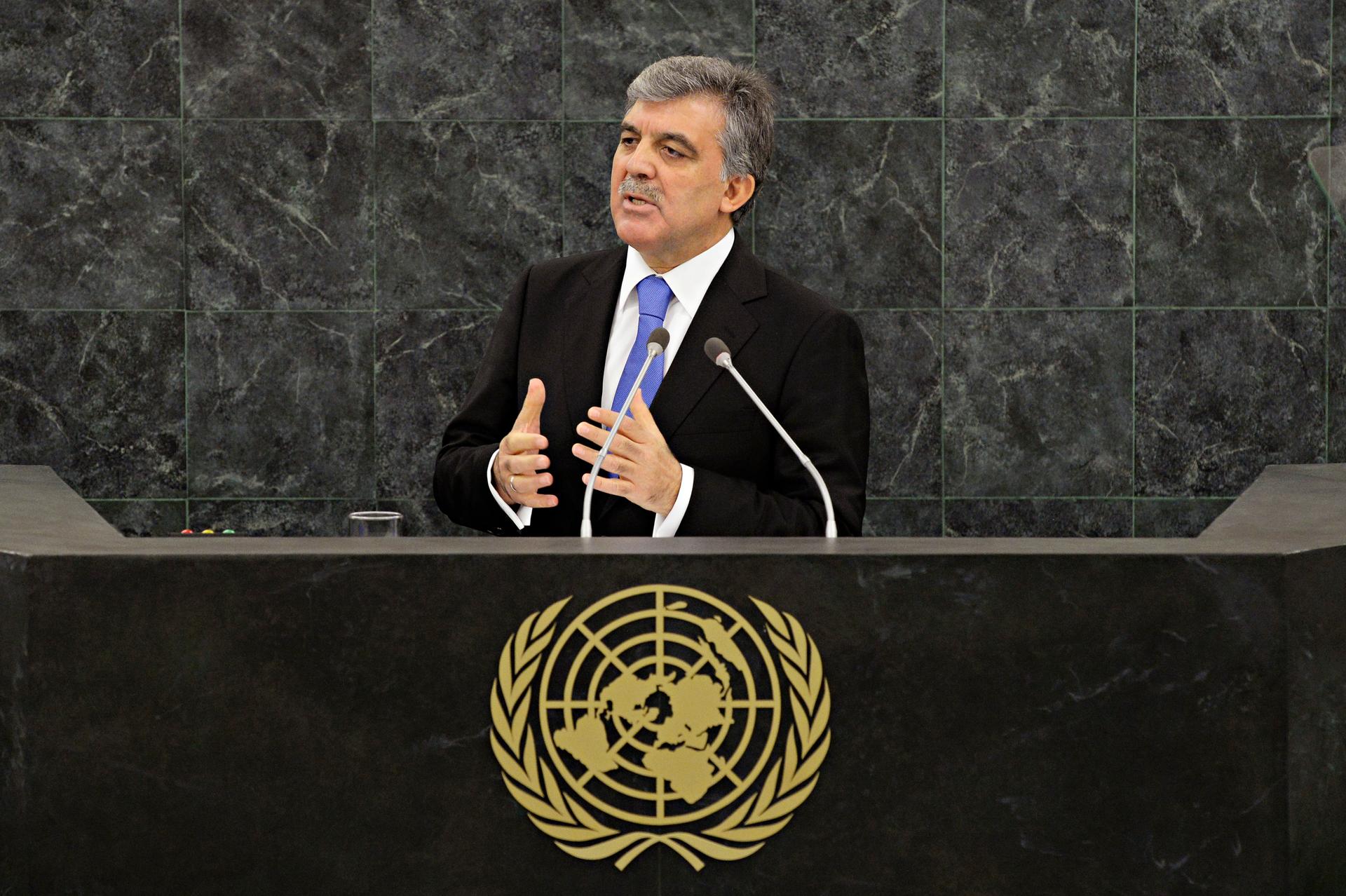Sometimes it’s not what you say or how you say it… it’s the language you pick
Turkish President Abdullah Gul addresses the 68th United Nations General Assembly in New York.
When Turkish President Abdullah Gul spoke at the UN this week, he started with this: "At the dawn of the 21st century, we had every reason to be optimistic about the future…" And then he stumbled. But it didn't matter. He had made his point already.
Just by speaking in English, Gul conveyed his support for the US, says Michael Singh of the Washington Institute for Near East Policy.
"When choosing whether to speak in a foreign language … you have to balance symbolism, on the one hand, and the need to be understood on the other," Singh says. "Speaking to a foreign audience in their own language can be a very powerful gesture of outreach and respect, even if frankly the phrase that you use or the attempt to speak the language is not particularly fluent."
Israel's former prime minister, Ariel Sharon, spoke English every chance he got, with a heavy accent, and pretty basic vocabularly — certainly more basic than when he spoke Hebrew. Many Israeli officials — and Israeli citizens — see speaking English as a sign of their importance on the world stage and their friendship with the US.
But English can send the wrong message for some leaders, and separate them from their people. Russian President Vladimir Putin speaks English, but rarely speaks it in public. And never in a diplomatic setting.
Phillip Seib, a professor of public diplomacy at the University of Southern California, says sometimes diplomats refuse to speak English out of national pride.
"They have their own language," Seib says. "Why should they speak someone else's language? Particularly in developing countries, this is a way to assert themselves. And they just don't see any reason to conform to others' linguistic abilities."
And there can be risk in speaking English. Iran's new president, Hassan Rouhani, spent several years earning his Ph.D. in Scotland. And you'd think that if he can understand and speak that English, he could easily speak English to an American TV audience or at the UN.
But when the issues are so nuanced, and the relationship so fragile, says Iranian-American writer Azadeh Moaveni, Iranian leaders like Rouhani want to play it safe. So they use their native langugage, "just because it is the one in which they're most forcefully articulate, polished and can have the most sophisticated statements and arguments."
And there's an added benefit from using an interpreter. The time waiting for interpretation gives you a few extra seconds to think. And if you're seen as saying something controversial, you can just blame it on a bad interpretation.
